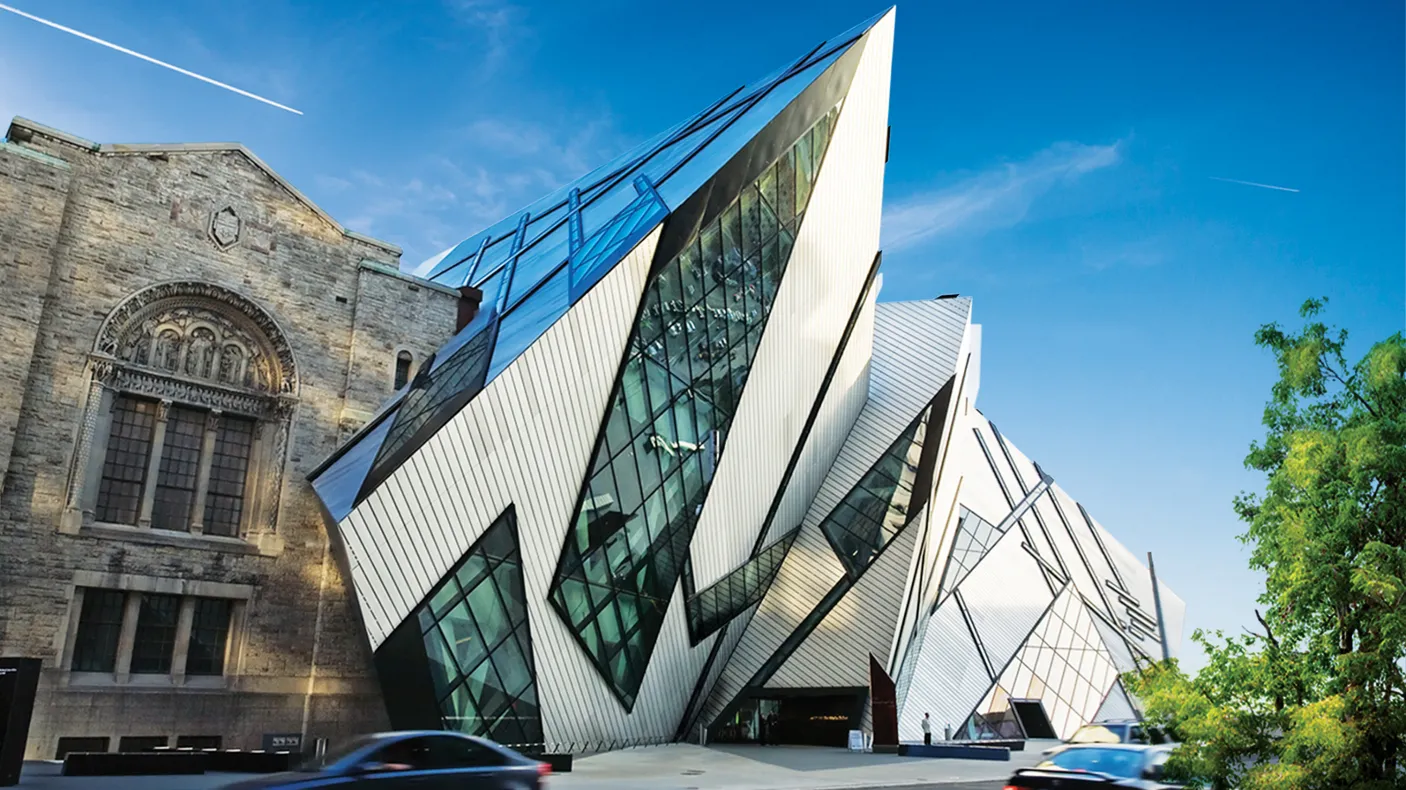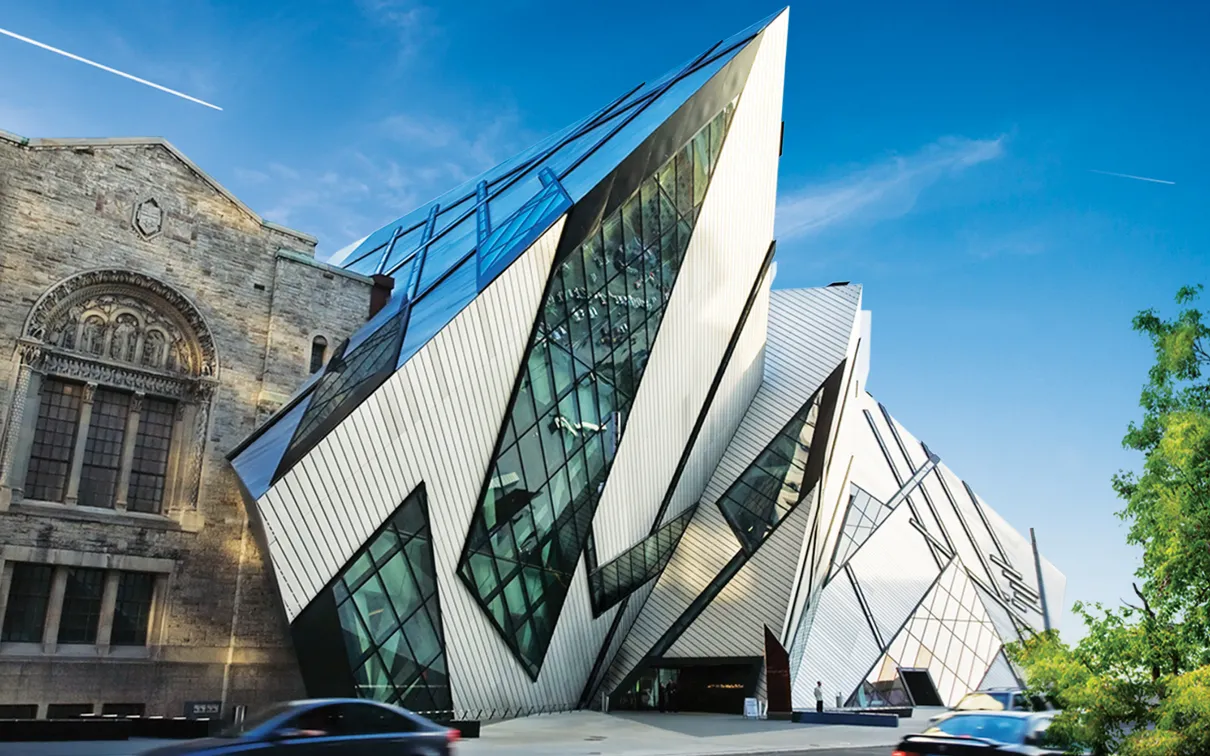The ROM and Fleming College Partner to Launch Innovative Environmental Visual Communications Program
Published
Category
Press Release
Unique Graduate Certificate Program for an Emerging Environmental Career
Fleming College and the Royal Ontario Museum (ROM) have partnered to launch an unprecedented academic program. Beginning May 2012, Fleming’s innovative Environmental Visual Communication (EVC) graduate certificate program, taught onsite at the ROM, is designed to bridge the gap between art and science-providing students with the knowledge and skills required to effectively communicate to an increasingly broad and diverse audience.
With a focus on strategic messaging and technical savvy, students will learn to use photography, videography, multimedia, and design principles to bridge environmental competencies with thoughtful communication. Students will study ways to identify strategies to inform and educate, garner engagement and support, and build and share campaigns to address conservation issues. The EVC certificate is a condensed six-month program.
Students and faculty of the program will be hosted by the ROM in downtown Toronto, offering unique opportunities to interact with world-class Museum research and education staff. Students will create valuable multi-media products and communication strategies that
will support the ROM’s mandate to make sense of the changing natural world. Access to the ROM’s remarkable educational resources will provide Fleming students with a truly unique learning experience.
“Environmental sustainability is at the forefront of everything we do,” said Linda Skilton, Dean of the School of Environmental and Natural Resource Sciences, Fleming College. “We developed this opportunity to train students who are passionate about environmental preservation and who want to effectively engage people to foster change in the environmental and sustainability fields.”
“Museums are changing, they’re embracing the advance of the mobile world, and the ROM is at the leading edge of this,” said Dave Ireland, Managing Director of Biodiversity Programs at the ROM. “Partnering with Fleming on the EVC program makes good sense. We have outstanding global research and collections and Fleming has budding conservation communicators looking for content.”
“The use of strategic conservation communications to inspire environmental awareness and advocacy is the foundation of this remarkable program,” said Cristina Mittermeier, a conservation photographer and leading authority on shaping how environmental issues are communicated.
Fleming College is proud to welcome renowned and inspiring conservation photographer and educator Neil Ever Osborne as the EVC Program Developer. Neil is a contributing editor and photographer for Canadian Wildlife Magazine and he has introduced curriculum on conservation communication to universities across North America. Using conservation photography practices, Neil blends his backgrounds in science and photojournalism to bridge gaps between people whose conservation goals are best met through collaboration.
“As the environmental sector continues to experience strong growth, conservation communications will become paramount,” said Osborne. “The EVC program will provide students with a unique and highly marketable portfolio of skills that can be used as conservation tools.”
The conservation communication skills acquired in the EVC program are applicable not only to the environmental sector but are also valuable in a wide range of professions. Graduates of the program will find career opportunities that include environmental communications, science journals and publications, interpreter roles and multimedia production for environmental organizations.
“There is a new career path to be explored in Environmental Visual Communication and Fleming has a taken a leadership position with this exciting and crucial academic opportunity,” said Dr. Wallace J. Nichols, a Research Associate with the California Academy of Sciences in California, USA, and a conservation communications innovator.
For Environmental Visual Communications (EVC) Graduate Certificate program details, visit
www.flemingcollege.ca/programs/environmental-visual-communication
About the Royal Ontario Museum
Located in Toronto, one of North America’s largest, most diverse and exciting urban centers, collections and research are the basis of the ROM’s international reputation. Canada’s preeminent museum of natural history and world cultures has six million objects in its collections and galleries showcasing art, archaeology and natural science.
With its dual mandate of world culture and natural history, the ROM is a world leader in several research areas, from biodiversity, palaeontology and earth sciences to archaeology, ethnology and visual culture. The ROM is also the largest field-research institution in Canada with research and conservation activities that span the globe. From fieldwork to onsite laboratory work, the ROM is at the forefront of such international projects as the Barcode of Life, originating new information towards a global understanding of historical and modern change in culture and environment.
About Fleming College
Located in the heart of Central Ontario, Fleming College has campuses in Peterborough, Lindsay, Cobourg and Haliburton. Named for famous Canadian inventor and engineer Sir Sandford Fleming, the college offers more than 100 full-time programs in Environmental and Natural Resource Sciences, Technology, Continuing Education and Skilled Trades, , Visual Arts, Education, Health and Wellness, and Law, Justice and Community Services. Fleming College has 6,000 full-time and 10,000 part-time students, and more than 60,000 alumni.


